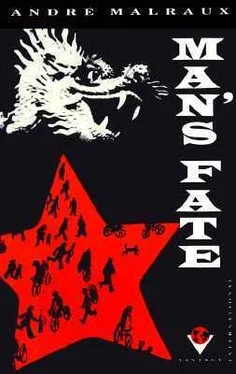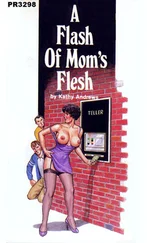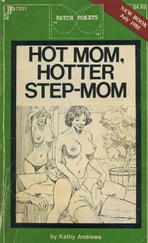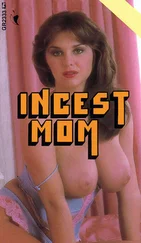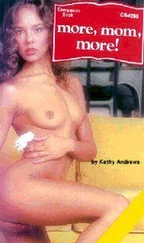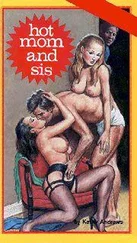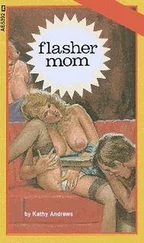“It’s not knowing … " said the latter. “If it’s a question of killing Chiang Kai-shek, I know. As for this fellow Vologin, it’s all the same to him I guess; but for him, instead of murder, it’s obedience. For people who live as we do there must be a certainty. For him, carrying out orders is sure, I suppose, as killing is for me. Something mist be sure. Must be."
He was silent.
“Do you dream much?" he went on.
“No. Or at least I don’t remember my dreams much."
“I dream almost every night. There is also distraction-day-dreaming. When I let myself go, I sometimes see the shadow of a cat, on the ground: more terrible than anything real. But there is nothing worse than dreams.”
“Than what kind of real thing?”
“I’m not the sort to feel remorse. In the business of murder the difficult thing isn’t to kil-the thing is not to go to pieces: to be stronger than. what happens inside one at that moment.”
Bitterness? Impossible to judge by the tone of voice, and Kyo could not see his face. In the solitude of the street the muffled hum of a distant car died away with the wind, which left the fragrance of orchards trailing among the camphor odors of the night.
“. If it were only that. No. It’s worse. Creatures.”
Ch’en repeated:
“Creatures. Octopuses especially. And I always remember.”
In spite of the vast reaches of the night, Kyo felt near to him as in a closed room.
“Has this lasted long?”
“Very. As long as I can remember. For some time it’s been less frequent. And I only remember. those things. I hate memories, as a rule. And I seldom have any: my life is not in the past, it’s before me.”
Silence.
“. The only thing I’m afraid of-afraid-is going to sleep. And I go to sleep every day.”
A clock struck ten. Some people were quarreling, in short Chinese yelps, deep in the night.
“. or going mad. Those octopuses, night and day, a whole life-time. And one never kills oneself, it appears, when one is mad. Never.”
“Does killing change your dreams?”
“I don’t think so. I’ll tell you after. Chiang.” Kyo had once and for all accepted the fact that his life was menaced, and that he was living among men who knew that theirs was daily menaced: courage did not astonish him. But it was the first time that he encountered the fascination of death, in this friend whom he could scarcely see, who spoke in an absent-minded voice-as if his words were brought forth by the same nocturnal power as his own anguish, by the all-powerful intimacy of anxiety, silence and fatigue. However, his voice had just changed.
“Do you think of it with. with anxiety?”
“No. With. ”
He hesitated:
“I’m looking for a word stronger than joy. There is no word. Even in Chinese. A … complete peace. A kind of. how do you say it? of. I don’t know. There is only one thing that is even deeper. Farther from man, nearer. Do you know opium?”
“Scarcely.”
“Then it’s hard to explain. Nearer what you call. ecstasy. Yes. But thick. Deep. Not light. An ecstasy towards. downward.”
“And it’s an idea that gives you that?”
“Yes: my own death.”
Still that distracted voice. “He wiH kill himself,” thought Kyo. He had listened to his father enough to know that he who seeks the absolute with such uncompromising zeal can find it only in sensation. A craving for the absolute, a craving for immortality-hence a fear of death: Ch’en should have been a coward; but he felt, like every mystic, that his absolute could be seized only in the moment. Whence no doubt his disdain for everything that did not lead to the moment that would join him to himself in a dizzy embrace. From this human form which Kyo could not even see emanated a blind force which dominated it-the formless matter of which fatality is made. There was something mad about this silent comrade meditating upon his familiar visions of horror, but also something sacred-as there always is about the presence of the inhuman. Perhaps he would Chiang only to kill himself. As Kyo tried to make out through the darkness that angular face with its kindly lips, he felt in himself the shudder of the primordial anguish, the same as that which threw Ch’en into the arms of the octopuses of sleep and into those of death.
“My father believes,” said Kyo slowly, “that the essence of man is anguish, the consciousness of his own fatality, from which all fears are born, even the fear of death. but that opiwn frees you from it: therein lies its virtue.”
“One can always find terror in himself. One only needs to look deep enough: fortunately one can act; if Moscow gives me its approval, it’s all the same to me; if Moscow disapproves, the simplest thing is to know nothing about it. I’m leaving. Do you want to stay?”
“I want to see Possoz before anything else. And you won’t be able to leave: you have no visa.”
“I’m leaving. Certainly.”
“How?”
“I don’t know. But I’m leaving. I am sure of it. It was necessary that I Tang Yen Ta, and it is necessary that I leave. Certainly I shall leave.”
Indeed, Kyo felt that Ch’en’s will in the matter played a very small role. If destiny lived somewhere, it was there tonight, by his side.
“You find it important that it should be you who carry out the plot against Chiang?”
“No. And yet I wouldn’t want to leave it to another.”
“Because you wouldn’t trust anyone else?”
“Because I don’t like the women I love to be kissed by others.”
The words opened the flood-gates to all the suffering Kyo had forgotten: he suddenly felt himself separated from Ch’en. They had reached the river. Ch’en cut the rope of one of the skiffs moored to the wharf, and pushed off. Already he was out of sight, but Kyo could hear the splashing of the oars at regular intervals above the lapping of water against the banks. He knew some terrorists. They asked no questions. They composed a group: murderous insects, they lived by their bond of union in a tragic narrow group. But Ch’en..
Pursuing his thoughts without changing his pace Kyo was heading towards the Harbor Conunission. “His boat will be stopped at the very start. ” He reached some large buildings guarded by army soldiers, ahnost empty compared to those of the International. In the hallways soldiers were sleeping or playing “thirty-six.” He found his friend without any trouble. A kindly apple-round face-the ruddy cheeks of a vine-grower, the gray drooping mustache of a Gaul warrior-khaki civilian garb. Possoz had been an anarchist-syndicalist worker in Switzerland, had gone to Russia after the war and become a Bolshevik. Kyo had known him in Peking and had confidence in him. They shook hands quietly: in Hankow any ghost was a normal visitor. “The stevedores are there,” said a soldier.
“Have them come in.”
The soldier went out. Possoz turned to Kyo:
“You observe that I’m not doing a damn thing, old feUow. When I was given the supervision of the port we estimated three hundred ships on an average: there aren’t ten. ”
The port slept beneath the open windows: no sirens, nothing but the steady lapping of water against the banks and the piles. A great ghastly light passed across the walls of the room: the searchlights of the distant gunboats were sweeping the river. A sound of footsteps.
Possoz drew his revolver from its holster, placed it on his desk.
“They’ve attacked the Red Guard with iron bars,” he said to Kyo.
“The Red Guard is armed.”
“The danger wasn’t that they would knock down the guards, old fellow, it was that the guards would pass over to their side.”
The beams from the searchlights re^turned, cast their enormous shadows upon the white inside wall, returned to the night at the very moment the stevedores were entering: four, five, six, seven. In working-blues, one of them naked to the waist. Handcuffs. A variety of faces, hard to make out in the shadow; but, in common, a glow of hatred. With them two Chinese guards, Nagan pistols at their sides. The stevedores remained as if glued to one another. Hatred, but also fear.
Читать дальше
